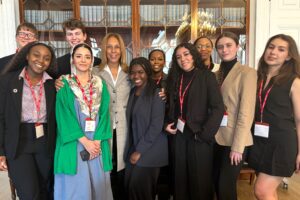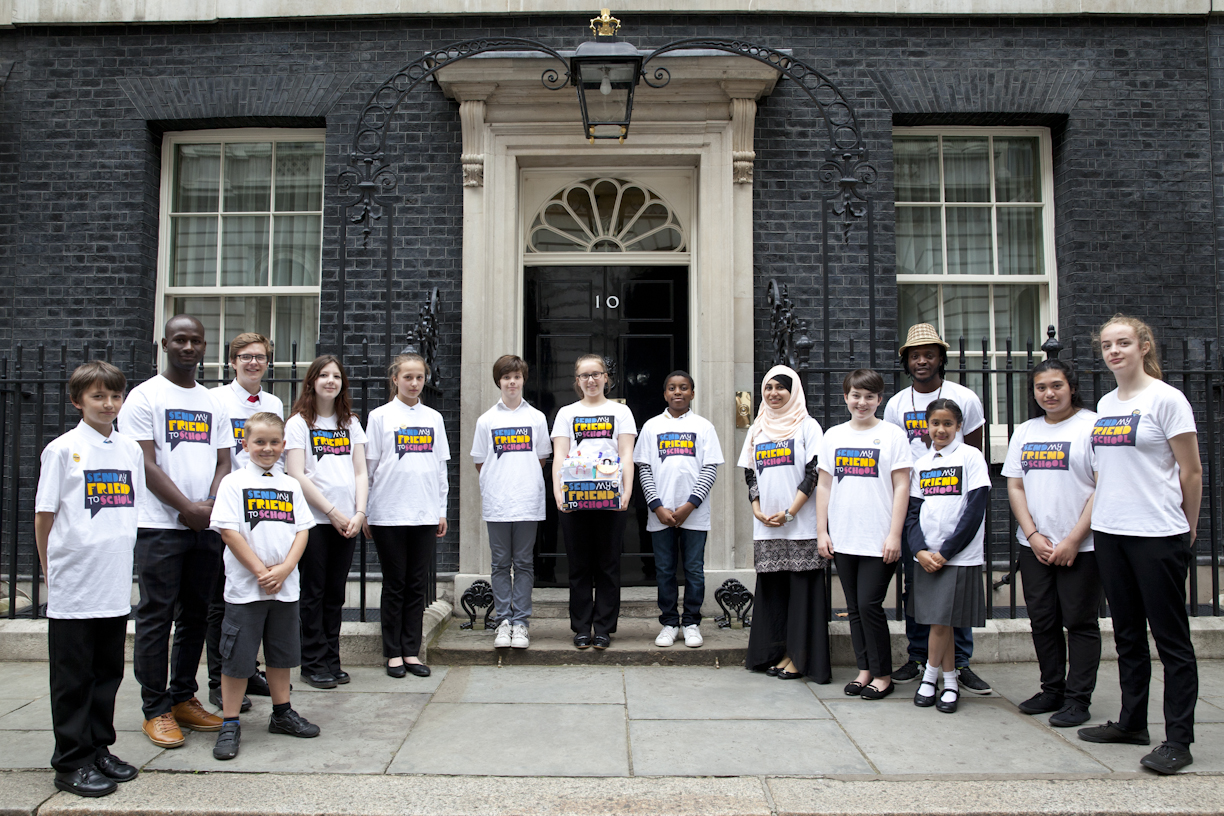Campaign Champion alumni Finn, 17 (2021-2022) from Bingley School writes about his experience visiting the FCDO to take part in the Youth Education Council meeting with Helen Grant, special envoy for girls’ education, and attend the 12 year celebration of the Girls Education Challenge
The Youth Education Council is coordinated by the Global Partnership for Education and Plan International UK to ensure a strong coordinated youth voice to connect UK decision-makers with young people’s views, priorities and recommendations, giving youth advocates across the UK a consistent platform to drive political commitments on global education.

Finn (back row, second in) with the rest of the YEC and Helen Grant
The Foreign Office presents a striking contrast between its outdated, uncomfortable, and colonial interior and the image of a modern, increasingly diverse, and open institution. However, despite the advancements made by the institution in recent years, progress is not yet complete.
The Youth Education Council (YEC), working with the Girls’ Education Department, aims to contribute to addressing this disparity in its own small way. By challenging ineffective and generalised top-down funding approaches, we seek to promote equal and sustainable development partnerships that are inclusive of all. We then aim to seize this golden opportunity to demonstrate to the government that young people possess the capacity to effect genuine change beyond mere rhetoric. Having been given the chance to work within the Foreign Office, the YEC has a responsibility to young people to prove our collective worth.
There are three objectives the YEC wishes to achieve: Firstly, to challenge the existing conventions of the Foreign Office and explore opportunities for improvement; Secondly, to continue to reinforce key structural aims of refugee, disability and climate change education, so girls’ education can be resilient and sustainable in the face of future challenges; Finally, to look to the future to see how we can expand the horizons of education with Artificial Intelligence, which several members of the YEC have already done by developing technology to help Ukrainian refugees adapt to the UK education system.
At an evening event to celebrate the ending of the Girls’ Education Challenge, attended by Minister Andrew Mitchell, Envoy Helen Grant, and several other key leaders in girls’ education, the most impactful words came from a member of the YEC, girls’ education advocate and Afghan refugee, Heela. She warned the event “to not normalise this conflict and humanitarian struggle”.
Even if the change the YEC will make may be small, our role is at least to remind the UK government of their moral obligation to help. Composed of a range of diverse young people from juxtaposing backgrounds, the Foreign Office has given us an opportunity to remind them of this moral obligation and to push forward the cause of youth and girl empowerment.


 Send My Friend to School brings together thousands of children across the UK to speak up for the right to education.
Send My Friend to School brings together thousands of children across the UK to speak up for the right to education.